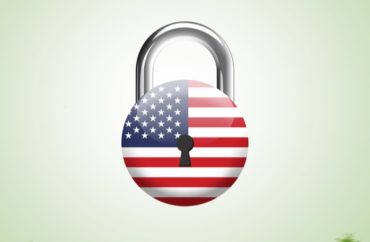
Yet try to play down that finding
One of the most valuable lessons I learned in the college classroom was not to shy away from the conclusions to which your evidence leads.
I had written a paper analyzing a state law restricting teen driving, put on the books in the past year. Its sponsors sold it as a way to save lives, yet they put no mechanism in the legislation to actually track its effectiveness (say, officers noting violations of the law when they write citations).
When I asked for evidence that the law had delivered on its promise, they insisted that it did. They just had no way to demonstrate it. And because I felt bad questioning their good intentions, I wrote in the paper that the law probably worked.
My professor praised the analysis – and trashed my conclusion. It didn’t follow from the evidence.
I recalled this when I read an intriguing Twitter thread about a forthcoming research paper on COVID-19 and social distancing by scholars at University College London, University of Pennsylvania and Harvard.
Written by Harvard psychiatry professor Alexander Tsai, it says the research team wanted to “assess the extent to which social distancing has restrained the growth” of the epidemic.
“Social distancing” has a very specific meaning here, covering “executive orders, state of emergency declarations, restrictions on travel, school closures, etc.”
https://twitter.com/drdrtsai/status/1246178771889278976
MORE: Stanford Med prof warns of ‘major problems’ with virus mortality estimates
They omitted measures that were “non-binding” and those issued by a lower jurisdiction, such as a county, and then mapped the “daily case growth rate” against the “first statewide distancing measures.”
Interestingly, the growth rate was “relatively constant” before implementation of these measures, and after 14 days, the “doubling time” now took five days, up from 3.3 days.
The team got very different results when it looked at the effect of “lockdowns,” by which it means “restrictions on internal movement” issued in 30 states, the median of which was implemented 10 days after the first social distancing measures.
Fourteen tweets into the 20-tweet thread, here’s the bombshell:
https://twitter.com/drdrtsai/status/1246186056342548485
There was no additional decline after lockdowns were implemented. The whole rationale for lockdowns is to #StopTheSpread better than through social distancing.
Let that sink it, but not for too long, because Tsai is afraid you’ll develop a conclusion based on his evidence.
https://twitter.com/drdrtsai/status/1246186680559730688
Perish the thought that people might look at this elite research team’s findings and ask their elected leaders to justify life-ruining, economy-destroying, health-worsening lockdowns with actual evidence that they #SlowTheSpread by themselves, not just piggybacking on less draconian measures.
Tsai may worry that this finding will be trumpeted by people with motivations he dislikes, who want to end the ruin that their governments have visited on their lives, pointlessly as it turns out. To be in good standing with the public health establishment is to favor draconian restrictions on daily life, or so we’ve learned.
But he can’t just bury the single most newsworthy finding of the research, so he tries to nullify its importance: “It is very difficult to identify the independent effect of lockdowns.” Don’t make the assumption that “lockdowns don’t work” by looking at research that … found no evidence they worked in this case.
It’s like me trying to conclude that a law with no mechanism to measure its effectiveness was probably effective. I hope other researchers are less worried than Tsai about the conclusions that follow from their evidence.
MORE: We need herd immunity ‘in a controlled and strategic manner’
IMAGE: DOERS/Shutterstock






Please join the conversation about our stories on Facebook, Twitter, Instagram, Reddit, MeWe, Rumble, Gab, Minds and Gettr.